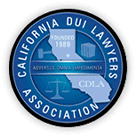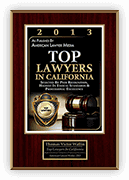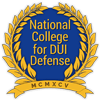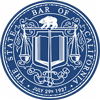Every person is different, and not everyone can learn their lesson on the first try. In fact, drivers might repeatedly take off down the road while they’re under the influence. These repeat offenders face many challenges ahead of them. It’s possible for citizens to have several punishments leveled on them, such as:
- No driver’s license
- Expensive fines
- Possible jail time
If you find yourself fighting repeated intoxication charges, it’s time to contact Riverside, San Bernardino and Orange County’s leading DUI defense law firm. Our legal professionals can help you fight those charges and avoid convictions that remain permanent on your record. Consider these tips for repeat offenders, and how they affect your entire life.
FIRST-TIME CONVICTION CONCERNS
When you’re pulled over for intoxication, the best way to handle it is by being cooperative. Be polite to the officers, and follow their directions regarding your license and insurance papers. Being cooperative, however, doesn’t include these actions, such as:
- Admitting to fault
- Agreeing to a personal search
- Allowing a vehicle search
If your first experience with police officers goes well, you should only expect a fine. Although it’s relatively expensive, paying this fine and moving on with your life is the simple way out of a first-time offense.
When you don’t pay attention to your rights, act uncooperatively and fail to hire a legal professional, your first offense can turn into a conviction. These allegations usually include:
- Jail time
- Loss of driving privileges
Your case can be made easier if there is no damages, injuries or deaths associated with your charges. Intoxication leading to a person’s death is a serious conviction that requires a professional’s guidance.
SECOND-CONVICTION RISKS
You may have hired the best criminal defense attorney in Southern California for your first intoxication offense, but a second charge holds more severe consequences. If you’re convicted of this second charge, you’ll have two mandatory punishments, including:
- Several hundred dollars in fines
- A minimum jail time of 90 days
Your lawyer can secure these charges in cases that only involve your indiscretions. If people or property are involved in your case, a judge must make a decision on your behalf. There might be more jail time, fines or other courses of action. Your legal counsel must make a strong effort in court in order to fight the conviction or punishments. Ideally, you should avoid any intoxication charges after a first offense.
While you’re in court, be courteous to the judge. Only speak when directed to do so, and work diligently with your lawyer in order to reduce any fines.
CARE WITH STATEMENTS
Don’t feel obliged to answer any questions that the officers pose during your arrest sequence. In fact, many statements are often used against people as their cases face a court of law. Law officers will ask many questions as you’re being arrested, such as:
- Have you been drinking tonight?
- When was the last time that you had a drink?
Although these are valid questions on the officer’s part, your responses can be held up in a court case. Officers may be called to the stand so that they can describe your demeanor during an arrest. It’s always best to remain quiet, and avoid giving the officers any cause to testify against you.
Your quiet demeanor is may be described as polite or defiant by officers as they seek to aid in your conviction. Whether this is your first, second or third intoxication charge, being quiet is always the best choice in order to secure a minimum conviction or possible acquittal.
UNDERSTANDING MIRANDA
Many citizens are under the impression that their Miranda rights are only in effect as soon as the officer says those short sentences. Take a look at the basic Miranda rights as they’re normally stated in Southern California, such as:
- You have the right to remain silent
- Anything you say can and will be used against you in a court of law
- You have the right to legal counsel
- If you cannot afford an attorney, one will be appointed to you at no cost
There are many variations on these statements, but they must be conveyed to offer the same information to each citizen. Your rights begin the very moment that an officer speaks with you at a traffic stop. Being silent is your best choice in any intoxication situation.
CONCERNING SOBRIETY TESTS
You’ve probably seen field-sobriety tests on television before where obviously drunk people try to walk a straight line. Although this scenario works well for entertainment’s sake, you don’t want to perform this test yourself. In fact, you can decline to perform a sobriety test when you’re pulled over. You can fail it for many other reasons besides being under the influence, such as:
- Nervousness
- Fatigue
Keep in mind that you cannot refuse a breathalyzer or bodily fluid test. These tests are legally binding for motorists, but they’re usually performed at a qualified facility. You should only take these tests when you’re at a police station or hospital.
Contact criminal defense lawyer Scott D. Henry today at 888-900-0951. He’s a leading defense attorney in Southern California. Our law firm can work on your case almost immediately after a DUI charge is filed. Don’t wait any longer to defend your rights. Our legal professionals make it possible to move forward with your life as you learn from your mistakes and grasp a sober lifestyle for the open road.

 (888) 444-7210
(888) 444-7210








